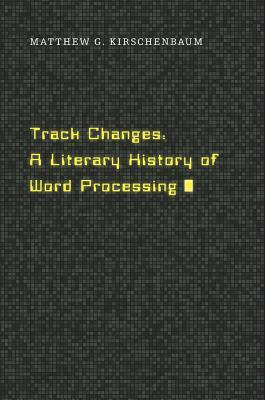What do you think?
Rate this book


368 pages, Hardcover
First published January 1, 2016
I have therefore adopted a reverse chronological trajectory, generally working backward in time with my chapters. This maneuver, sometimes identified with what is called media archaeology, helps me avoid the temptation of lapsing into easy or self-fulfilling narratives of technological progress while simultaneously exposing the inherent strangeness of “word processing” through its increasingly remote—rather than increasingly familiar—incarnations.This is far and away the most revelatory thing that I learned. Prior to this, my only real chronological survey was (surprise, surprise) Chrontendo, a video chronology of all Nintendo 8-bit games. I cannot help but now wonder how being able to structure historical narratives in a way to “help avoid the temptation of lapsing into easy of self-fulfilling narratives of technological progress” alter the feel of the work. Perhaps I am still in the honeymoon phase of this format, as this is my first brush with it, but I feel like it might enliven Talking Simpsons, and alleviate the worry of finishing the first half-dozen good seasons and being mired in the dregs of nostalgia-less modernity. Dark Money, which I am currently reading, shepherds the reader towards a future from which they cannot escape, the doom palpable as wave after wave of money buffets the system, breaking it down into our known dystopic present.
ASCII, the international standard of binary numbers designating various alphanumeric signs, was originally designed for use with teletype machines, and so to this day includes seven-bit codes dedicated to vestigial hardware features such as the ringing of the terminal bell. (The initial choice of seven bits for the electronic alphabet was—at least according to one account—a concession to the tensile strength of paper.)It is important because the book gives historical context to technology without sanctifying or demonizing its use. Knowing what happened and why divorced from overt ideological leanings leads to recognition of the word processor as both artifact and deconstructed synecdoche of writing en masse. And due to the format choice of reverse chronology in Track Changes, even unintentional technological-utopian futurist ideologies are removed.
Similarly, it is a commonly held belief across a number of different genres that novels became noticeably longer after the advent of word processing. But it is important to remember that the marketplace for science fiction (and other genres) was changing rapidly during the 1980s, and in addition to the rise of chain bookstores and the newfound demand for best-sellers came the popularity of film and television tie-ins, especially in the Star Wars and Star Trek franchises….such questions seem to me impossible to adjudicate without focused biographical and critical scrutiny, and I am suspicious of any claims to account for broad shifts in literary trends solely through technological factors.Then take this headline from 2013:Children’s reading shrinking due to apps, games and YouTube, contrast it with 2014’s Millenials Are Out-Reading Older Generations, and realize in forty years the internet, like word processors, will be tech that can be blamed for whatever the prevailing narrative at the time will be. Track Changes adds this perspective, adding threadbare mementos glimmering in recollection to an increasingly ephemeral world of computer history.
The longest Amazon review at the time of this writing, by Armando Fox, insists from its title that this book is for a "niche audience," but - perhaps I'm just severely out of touch - the most surprising bit of the experience was just how diverse and widely-applicable Word Processing history was/is. Like Armando, I would also call myself "an aficionado of both computing history and the history of the written and printed word," but I believe the relevance to the latter of these subjects should extend Track Changes' audience far beyond what one would first assume. "Does word processing belong to the history of writing or the history of computing? The answer is not obvious," notes Kirschenbaum in his Preface. I believe those interested in either should consider it required reading.
To those like myself who are particularly interested in word processors and their history, I say buy this book immediately as a given. I can't remember the last time I was so elated to have found such a book, largely out of relief, for I was beginning to think I would have to write it myself.
The volume of published reviews of this book - and the diversity of the publications that carried them - will surprise you. I set out to gather them all in one space, and found the task quite huge.
There is some drudgery, yes - extensive details on IBM's interworkings in the 1970s, perhaps - but Kirschenbaum does an excellent job at being thorough without inappropriate tedium. To call it dull would be a critique of the story, itself, rather than his writing.